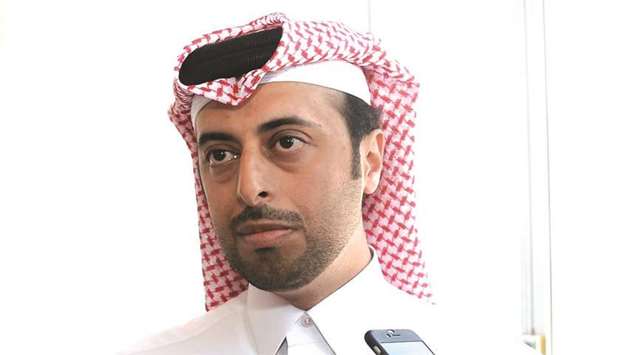*Contracts worth $1.7bn signed after the blockade
*Alternative sources being tapped for supplies
*Local companies able to meet most of the demands
Even if the blockade continues for 20 years, Ashghal will keep delivering projects as scheduled, but we don't want the crisis to last because of the close affinity with the neighbouring countries, the Public Works Authority’s assistant president Abdulla Hamad al-Attiyah has said.
“If Ashghal signed contracts worth more than $3.5bn so far this year, $1.7bn of that was signed after the blockade,” the official told Al Jazeera English in an interview.
“We will deliver on our commitment to the FIFA 2022 World Cup. We do not foresee any issues. Our commitment to His Highness the Emir Sheikh Tamim bin Hamad al-Thani will be met one way or another,” al-Attiyah stated.
Ashghal is working on a portfolio of more than QR100bn and anticipating signing other contracts to the tune of $20bn in the next five to seven years, he pointed out, while clarifying that 99% of the problems caused by the blockade have been resolved.
“The local contractors have been working with Ashghal on billion dollar projects for more than 10 years, and currently we are more than capable to do our own design, our own construction locally without going to the outside world,” the official declared.
With about 2,900 employees, Ashghal is responsible to build all infrastructure projects for Qatar including roads, bridges, hospitals, schools and even nurseries, he explained.
“Ashghal is designed to not only build but also operate. So we operate all our infrastructure projects. And we operate the sewage network of Qatar. Our main goal obviously now is to build the entire necessary infrastructure for the economic growth of the country and to meet Qatar National Vision 2030,” the top official said.
Asked about the impact of the blockade and the lessons learnt, Ashghal’s assistant president recalled that though there was a certain shock in the market in the beginning, some clever planning has changed the perspective into a better one.
“Material that used to come from the UAE, thanks to the hard work of the Ministry of Transport and Communications, is going to be coming from Oman, or directly coming in to the new Hamad Port which has more than enough capacity to handle shipments.
“There are alternatives for materials made in the four countries that have declared the blockade on Qatar. Certain alternative materials are available within Qatar itself and this has helped the economic growth and our private sector. So, it is business as usual.”
Since 2014, Ashghal’s strategy is for all contractors to have a stockpile for up to three months. Hence the impact of the blockade has been minimal, according to the official.
“With the guidance of His Highness the Emir, we look at strategic storage. For instance, Qatar Primary Materials Company has a big stockpile of gabro, a material that we use. We are looking at other materials that are being sought and stored within the country.
“In the past, Qatar’s law favoured countries within the Gulf region, specifically our three neighbours from whom we used to seek a lot of material. The guideline was to prefer material from the GCC countries even if the cost of the material used to be up to 10% higher. Bitumen used to come only from Bahrain. But now, we have alternative supplies and bitumen is today 10% cheaper than before the blockade.”
Al-Attiyah said that a programme named Taheel or qualification, initiated by Ashghal is meant to encourage the local market. “We sit with contractors and tell them what material we need and when do we need it. Very soon, we are going to qualify those contractors and implementing the directives of HH the Emir to get the private market standing on its feet and we believe we are stronger now than what we were before.
“Just days ago we opened 290km of new road. How can this be delivered if you are under a blockade. It can only be delivered with the right planning and strategic outlook. From an overall perspective we know there's a challenge we see the challenge and we will meet the challenge."
To a question as to how long is this blockade going to last and for how long can Ashghal cope with it, the authority's vice-presiedent replied: "From a construction perspective we can cope with it indefinitely , this is not a war. But from an emotional perspective we don't want it to last because at the end of the day we are dealing with our families, we are dealing with blood , we are dealing with culture and we are dealing with history. We have suppliers from those countries calling us everyday saying they will give us material; they would like to send it to some friendly countries like Oman. The government (Qatar) did not stop any of this material coming into Doha.What does that tell you? We are not with the blockade , we are not with closing businesses. We are not with any harm for any people. There are instructions as I said to move on."
(Courtesy Al Jazeera: Abdulla Hamad al-Attiyah was talking to Al Jazeera English's Osama Bin Javaid. @osamabinjavaid)

